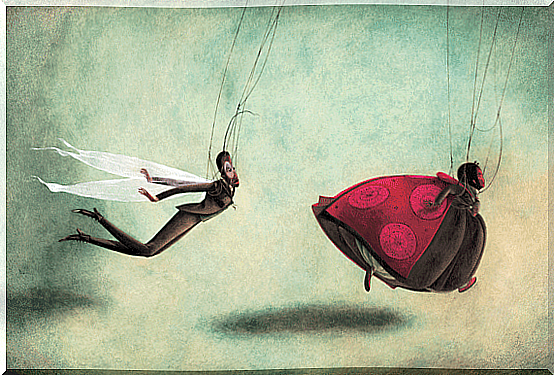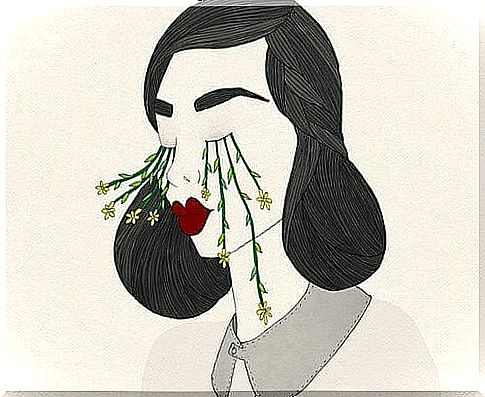I Prefer Honest Distance To Hypocritical Proximity

In circles where hypocrites abound, sincere people are seen as evil and truth as the greatest enemy. For this reason, we should always prefer honest detachment when our values collide with a cryptic closeness that disguises itself as kindness, but is actually a false person.
Some of you may not be aware that scientists, sociologists and biologists have preferred to call the current geological age “Anthropocene” (“new man”) instead of “Holocene”. The reason is simple and also inspiring: to emphasize a period in which humanity aims to reach a higher “quota” in terms of intelligence, social cohesion, harmony, respect and awareness.
However, books such as “Anthrozoology: Embracing Co-existence in the Anthropocene” by scientists Michael Tobias Charles and Jane Gray Morrison speak of a very concrete dimension: the hypocrisy of being human. We continue to be the vertebrate species used to preach one thing and do another. We suffer from this disorder by nature and have a hard time fostering coexistence with others by putting aside cultural, social or gender differences.
We all know that it is not at all easy to keep our distance from those who do not like us or make us feel uncomfortable. Sometimes we are forced to share the same spaces with a family member with extreme ideas or with the director who does not respect our moral principles. What we can do, however, is to create adequate spaces for self-protection where we never fall into the practice of hypocrisy.

In the realm of hypocrisy only the strongest survive
In the Iliad Achilles said that if there was something he hated more than the gates of Hades it was people who said one thing and did another. Perhaps we are all dealing with someone with a similar attitude, which is so abundant in the Anthropocene era. What we may not all know, however, is that we should not blame this behavior solely and exclusively on the hypocrite.
Hypocrisy is much more than the classic dissonance between our ideas and our behavior. Sometimes, the environment we live in forces us to be hypocrites. Every day we face the puzzles of life, the pieces are scattered and we have to survive in these complex “social surfaces”. Almost without realizing it, we all end up doing things that are not in harmony with our principles, with our ideas or beliefs.
There can be an abyss between what we think, say and do and, while we don’t want to break our inner principles, in the end we do it because of social pressure. Leo Festinger defined it as “cognitive dissonance”, or experiencing a disharmony or conflict between one’s system of ideas, beliefs and emotions (cognitions) and one’s behavior.

Now, although a large part of society is used to mass hypocritical behavior, in reality we can distinguish two types of people. On the one hand, there are those who suffer from cognitive dissonance and decide to set limits to find an adequate harmony between what they think and what they do. On the other hand, there are simply an abundance of those who conceive life in this way. The dissonance ceases to exist to leave room for a solid and clear cognition that everything has a meaning and first of all a purpose.
How to protect yourself from self-righteous behavior
Practicing what is preached is not only an act of respect, but also of self-respect and personal well-being. We know that we all, in one way or another, have behaved like hypocrites to be able to integrate ourselves in a certain context: at work, at a party, at a family reunion.
If there is a clear and objective purpose of cognitive dissonances, it is to activate a psychological alarm to inform us that the thread that supports our principles and values is about to break. Starting a process of reflection undoubtedly saves us from hypocrisy.
What can we do if we have to deal with a hardened and corrosive self-righteous person? There are honest people who, once they detect an incompatibility of characters or values, decide to keep their distance with elegance and respect. Something we are certainly grateful for, but unfortunately not everyone puts it into practice.

The ideal would be that we were to set a safety limit and we moved far enough not to have to coincide with the hypocrites, but if it is a family member, a colleague or the boss, it may not be so easy to buy a single ticket. gone.
In these cases, the three “R” rule is useful:
- No to “reinforcements” : the hypocrite can and has every right to live his life where we are, but we must not reinforce his behavior. In other words, we should be aseptic, not have deep conversations with him or reveal intimate secrets, and not even give too much importance to what he says.
- “Respect and respect each other” : let the hypocrite behave as he sees fit, do what he wants, but always in his sphere. Let’s not let him into ours. Let’s respect each other and give them the right importance without letting ourselves be influenced by their behavior.
- No to “renounce” our values : sometimes, when we spend too much time in a scenario characterized only by hypocrisy, it is normal to fall into the net and behave in the same way. Let us remember our values and principles and defend them even if others do not approve or understand them.
Last but not least, we must not forget that hypocrisy masquerades as kindness when it suits it. We learn to be intuitive and cautious, we keep the right distances to restore our emotional and psychological well-being.
Images courtesy of Rebecca Dautremer









